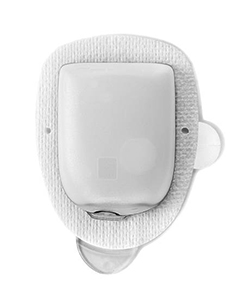 Insulet, a Massachusetts-based company that sells a tubeless insulin-delivery system called the Omnipod, spoke at PODD about the process of developing a drug-delivery device that the targeted patient population will actually want to use.
Insulet, a Massachusetts-based company that sells a tubeless insulin-delivery system called the Omnipod, spoke at PODD about the process of developing a drug-delivery device that the targeted patient population will actually want to use.
“Everybody is staring down the barrel of the costs of adherence,” VP of business development Michael Graffeo said. “Everybody would like to do something about that. Collectively as a group, what I get is a great deal of angst over what do we do about that, that actually is going to make a difference? Because we’ve attempted to throw solutions at it for years. We’ve been trying to solve adherence challenges for a long time, and we’ve really made no dent in that.”
Graffeo noted that many devices are designed to simply deliver a drug at a certain volume with a particular viscosity – they’re not designed with the patient in mind.
“When you start thinking about self-administration, you start to deal with the real world. You start to deal with real people with real preferences and real habits. This is where things get tangled and messy,” he explained.
“Making products that people love matters. It matters a great deal. At least at Insulet we come from a perspective where we know that it matters because our patients wear devices all day, every day, from now to the rest of their lives. See, you can’t put something on somebody and have them go, ‘I don’t really like it, but I’ll put up with it.’
We keep chasing better adherence with solutions that actually decrease adherence. When we start by understanding the patient working together collaboratively, we have a fighting chance to actually answer these questions,” he added.

